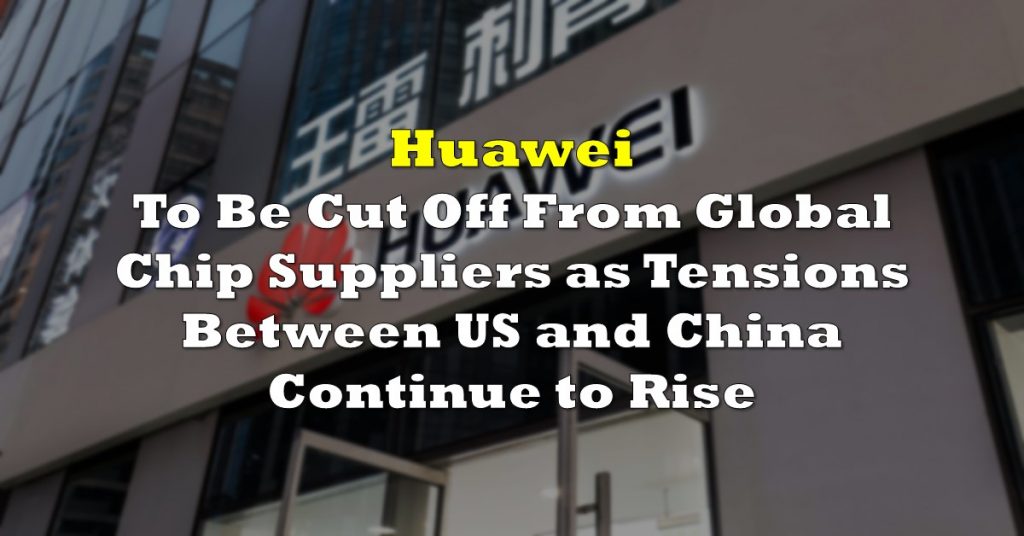Last year, a Chinese company embarked on the construction of a crypto-mining operation in Cheyenne, Wyoming, raising concerns among Microsoft’s national security threat assessment team. The site’s proximity to a Microsoft data center supporting the Pentagon and its 1.6-kilometer distance from an Air Force base controlling nuclear-armed intercontinental ballistic missiles prompted Microsoft to express the potential for the Chinese to engage in “full-spectrum intelligence collection operations.”
In August 2022, Microsoft submitted a report to the Committee on Foreign Investment in the United States, which monitors threats posed by foreign investors.
Bitcoin mine operated by Chinese-owned BitOrigin in Cheyenne, Wyoming is next door to a Microsoft data center that support the Pentagon. It's also about 1 mile away from an Air Force base that controls nuclear-armed intercontinental ballistic missiles.https://t.co/PlZA6ymTIO
— Ben Tallmadge (@BenTallmadge01) October 14, 2023
U.S. government officials, speaking anonymously, confirmed they had been monitoring the Wyoming operation for months in response to Microsoft’s warning. Measures were taken to address potential intelligence collection, though specific actions were not disclosed. The mining company also responded to inquiries from the federal investment committee.
These national security concerns regarding the Wyoming site, previously unreported, are part of a broader apprehension about the recent surge in Chinese bitcoin mines across the United States.
Beyond intelligence concerns, these mines, typically large warehouses or containers filled with specialized computers, exert significant pressure on power grids. The computers operate continuously to mine digital coins, putting substantial strain on energy resources. Brian Harrell, a former assistant secretary for infrastructure protection at the Department of Homeland Security, noted that coordinated mining operations could stress the grid to the point of causing targeted blackouts and cyberattacks.
Harrell emphasized that if Chinese mining infrastructure impacted key energy systems, it warranted additional investigation and scrutiny.
The New York Times identified at least 12 states with Chinese-owned or Chinese-operated bitcoin mines that collectively consume as much energy as 1.5 million homes. The Cheyenne mine, at full capacity, would require enough electricity to power 55,000 houses.
Many of these mines utilize computers from Bitmain, a Chinese company with no apparent direct connection to Chinese authorities, although import records reveal shipments sent to the United States through a subsidiary located at a Communist Party site in southern China.
Many mines're equipped with computers made by Bitmain, a Chinese firm that sent shipments to the US thru a subsidiary at a CCP site in China.
— Ben Tallmadge (@BenTallmadge01) October 14, 2023
Many mines also have digital links with grid operators that – if inappropriately managed – could allow intrusions into critical systems
After China banned bitcoin mining in May 2021 due to energy and economic concerns, Bitmain increased equipment shipments to the United States fifteenfold compared to the previous five years. The company claims to control 90% of the global market for equipment specially designed for bitcoin mining.
While some U.S. mining operations are straightforward attempts by wealthy Chinese individuals to generate income independent of Chinese authorities, others maintain opaque ownership structures. Several can be traced back to the Chinese government.
For instance, court documents link the Cheyenne mine to five companies sharing the same office in New York City, with one registered in the Cayman Islands. None of the owners have apparent ties to the Chinese government or Communist Party.
According to Microsoft, there are no direct indications of malicious activities by this entity. However, the presence of a substantial crypto-mining operation, coupled with an undisclosed number of Chinese nationals in proximity to Microsoft’s Data Center and a strategic missile base, presents significant threat vectors.
The escalating bitcoin mining in the United States has raised significant concerns. Recent investigations revealed that these operations consume approximately 4,000 megawatts, equivalent to powering over 3 million U.S. households. The vast energy consumption combined with the ability to rapidly start and stop operations make bitcoin mines unique among large power users. While this flexibility can help manage grid stability, it also poses risks if not appropriately managed.
These facilities also exist or are planned near:
— HUNTSMAN 🏴☠️ (@maphumanintent) October 15, 2023
Grand Forks AFB
Minot AFB
Ellsworth AFB
Cavalier SFS
Malmstrom AFB
And that's just from research I did adjacent to the Fufeng wet corn mill issue in Grand Forks.
The dominance of Bitmain in the mining machine market has amplified these concerns, given previous vulnerabilities found in their equipment. In July, the North American Electric Reliability Corp. highlighted the growing threat of Chinese cyberattacks on U.S. critical infrastructure. A report from the Office of the Director of National Intelligence warned of aggressive cyberoperations by China against U.S. critical infrastructure.
Security advisory firm The Chertoff Group has been approached by multiple critical infrastructure providers seeking advice on the risks associated with Chinese-owned bitcoin miners.
Despite these concerns, the extent of Chinese-linked bitcoin mining operations in the U.S. remains largely undisclosed. The identity of mine owners is often obscured by a web of shell companies.
Bitdeer Technologies Group, one of the biggest crypto mining ops in Texas. The firm is controlled by Wu Jihan, a major crypto pioneer from China & co-founder of Bitmain.
— Ben Tallmadge (@BenTallmadge01) October 14, 2023
Texas has lucrative incentives that makes it the most popular destination for Bitcoin miners in the US.
Chinese involvement in bitcoin mining is evident in multiple U.S. states, including Texas, which has seen significant growth in this sector. Despite legislative efforts to restrict Chinese land ownership, several mining operations with Chinese ties continue to operate.
In Texas, state officials have embraced Chinese-linked bitcoin mining companies, drawn by the incentives offered by the state to miners. This embrace highlights the appeal of cryptocurrencies in conservative circles and the associated mistrust of central banks.
The influx of mining in Texas has already impacted the state’s grid, which is vulnerable due to its lack of connections to other grids. The Electric Reliability Council of Texas reported that bitcoin mining has resulted in forecasting errors and has the potential to worsen grid events.
Proposed regulations aim to mitigate these risks by controlling how quickly mines can start or stop using energy, addressing the current lack of regulation in this area. Chinese cryptocurrency mines have rapidly integrated into Texas, adapting to local politics and regulations.
Poolin, a company established by a Bitmain veteran, runs mines in West Texas with a combined capacity of 600 megawatts, enough to power nearly 500,000 U.S. homes. The company’s founder, Kevin Pan, who is a Chinese citizen, has celebrated the positive reception his company received in Texas, reinforcing the state’s status as a prominent destination for cryptocurrency mining.
Information for this briefing was found via Japan Times and the sources mentioned. The author has no securities or affiliations related to this organization. Not a recommendation to buy or sell. Always do additional research and consult a professional before purchasing a security. The author holds no licenses.









